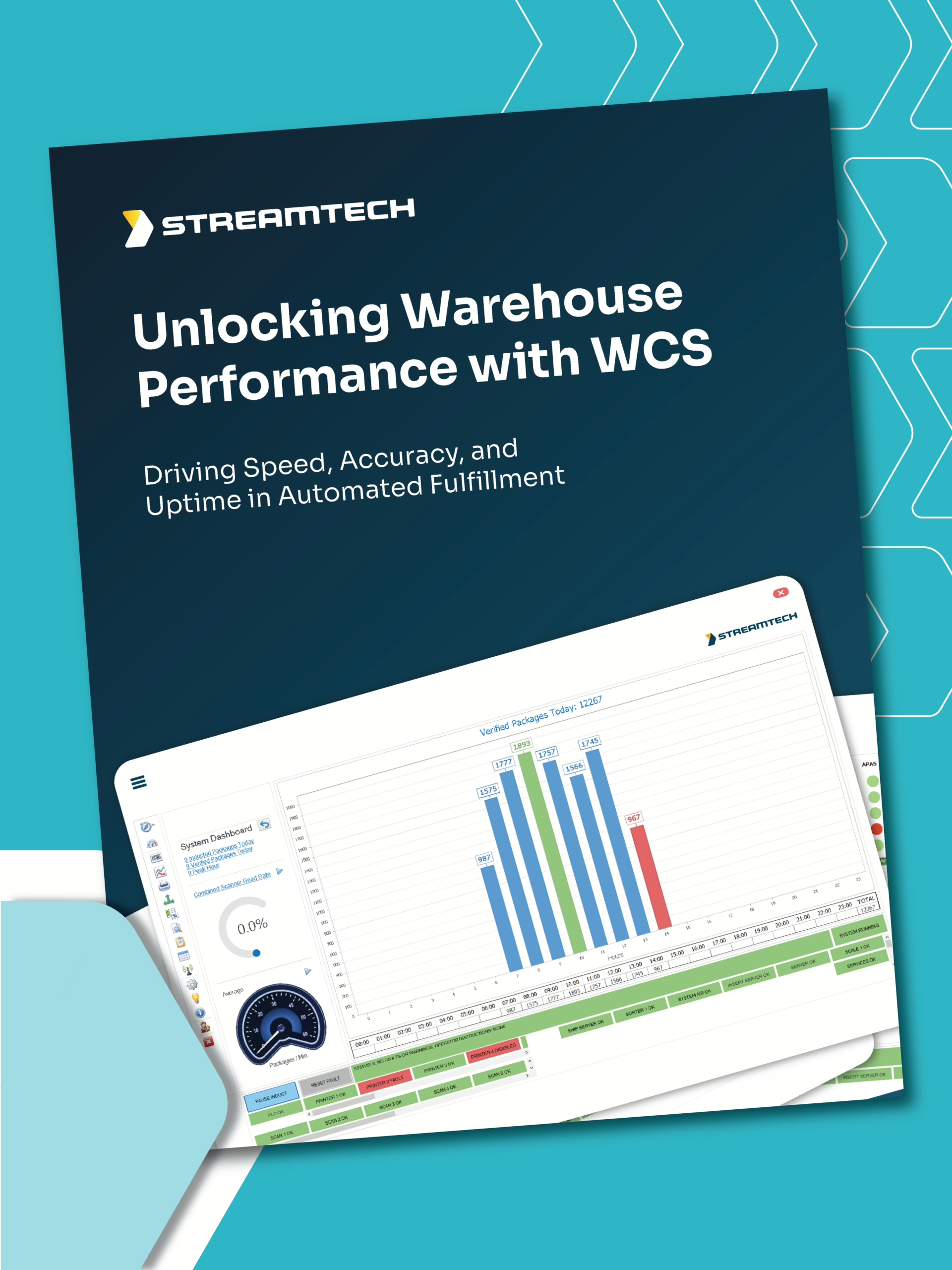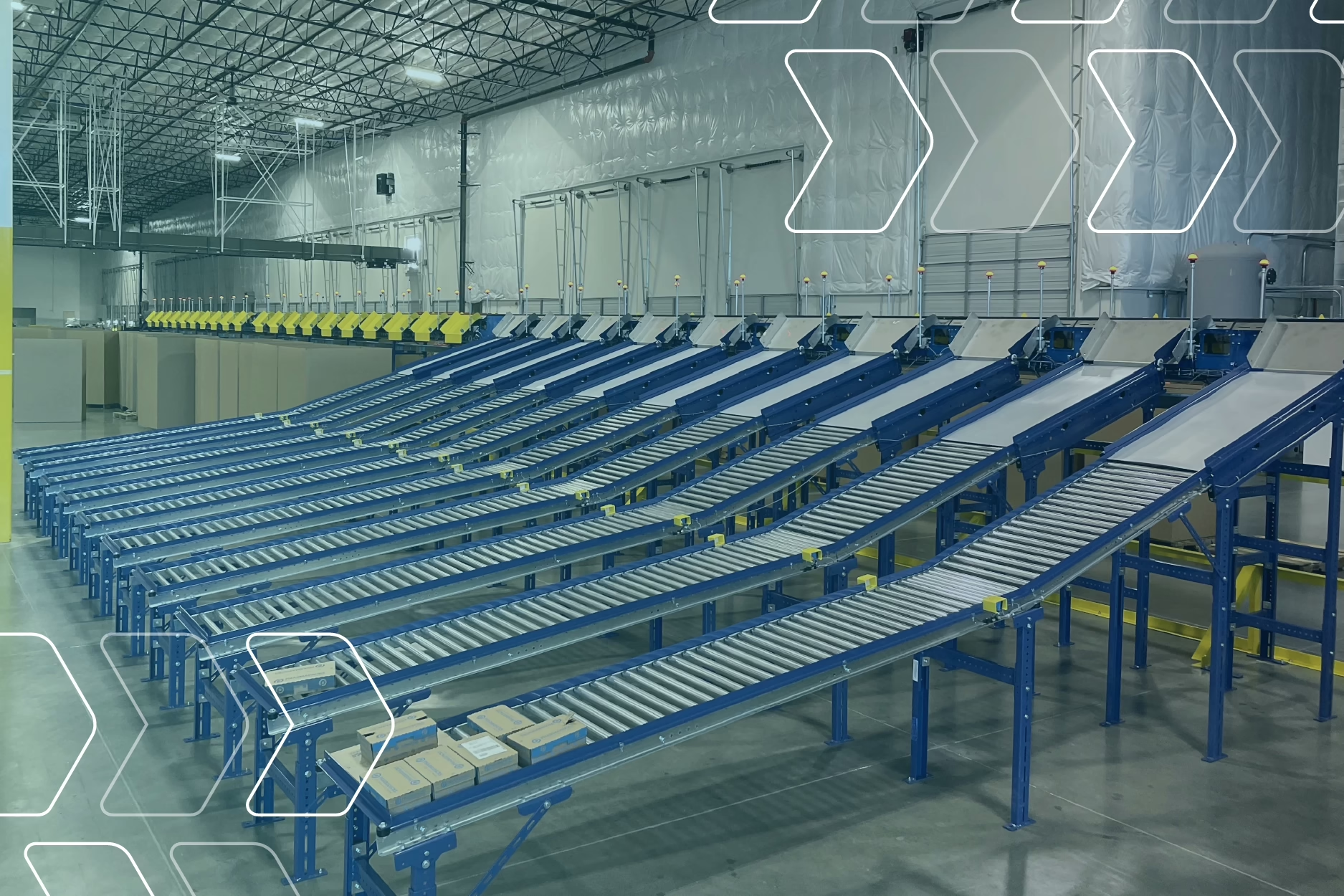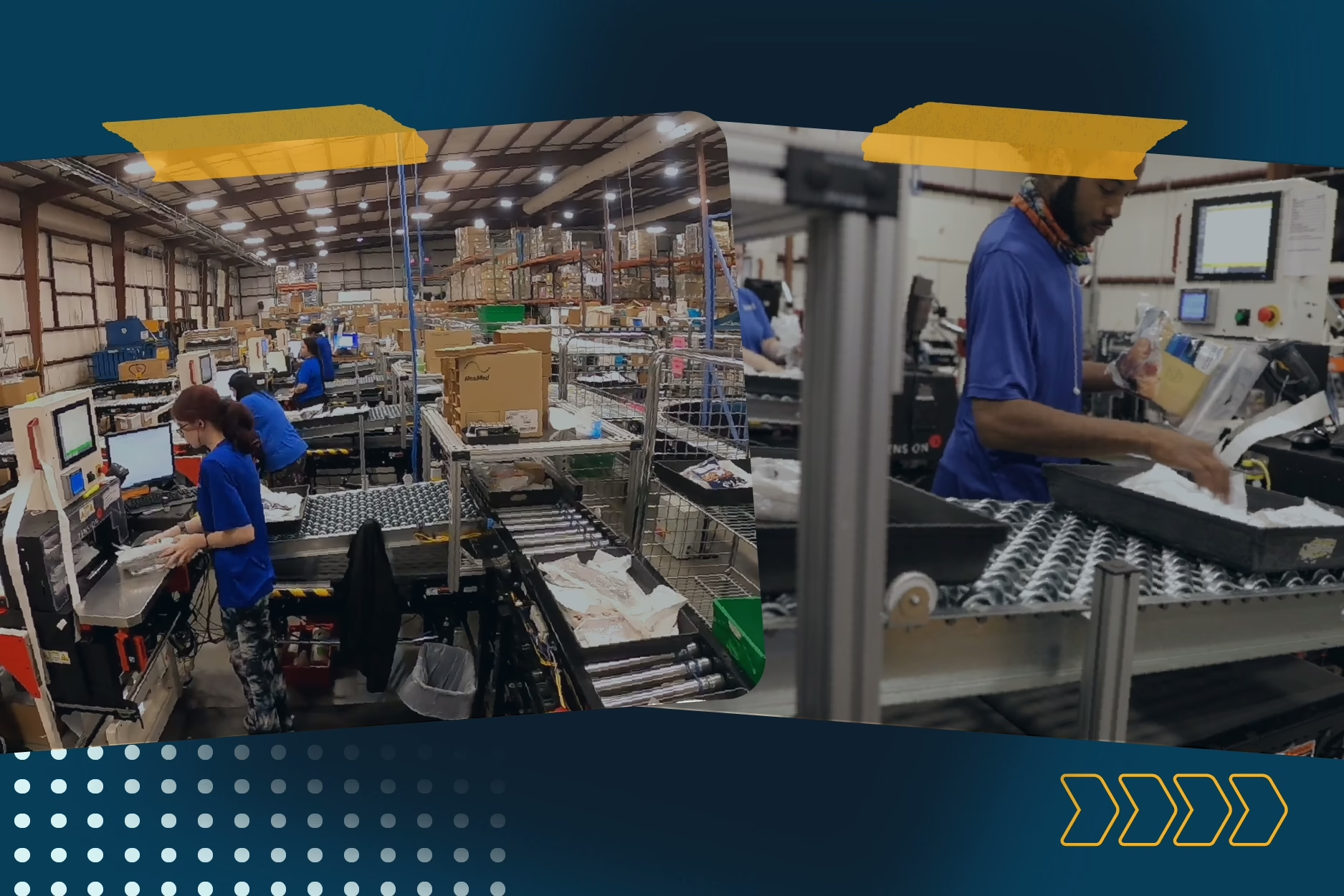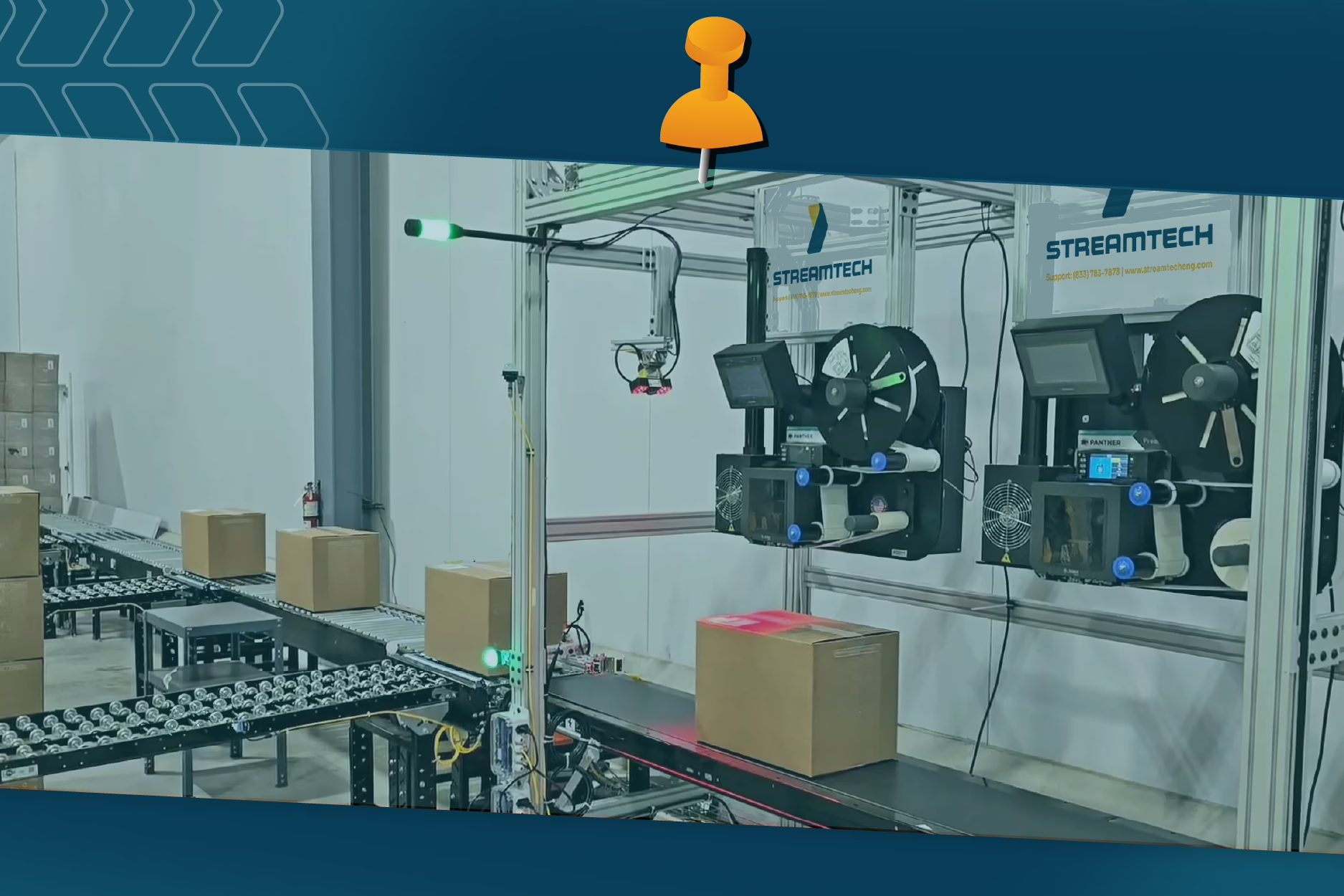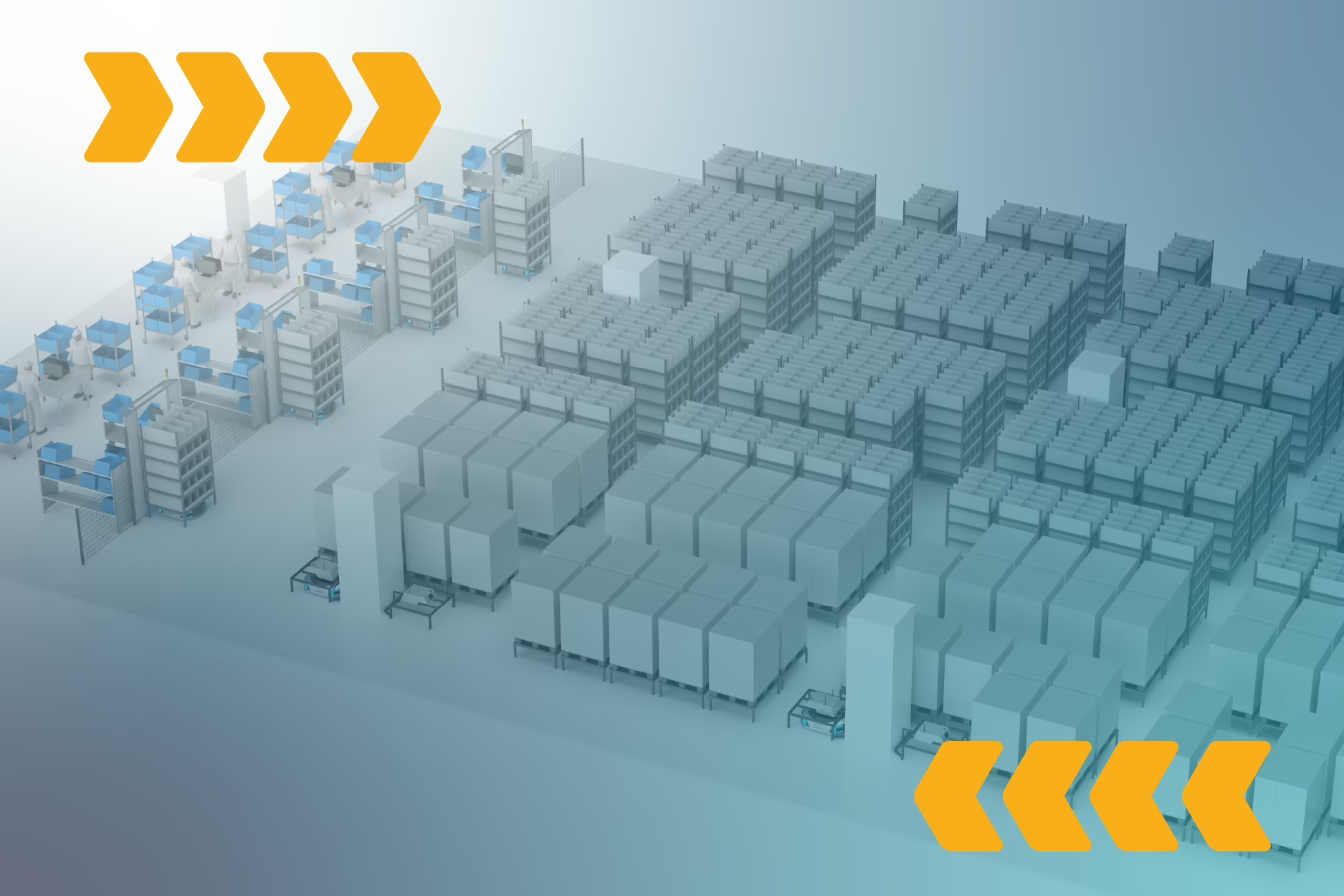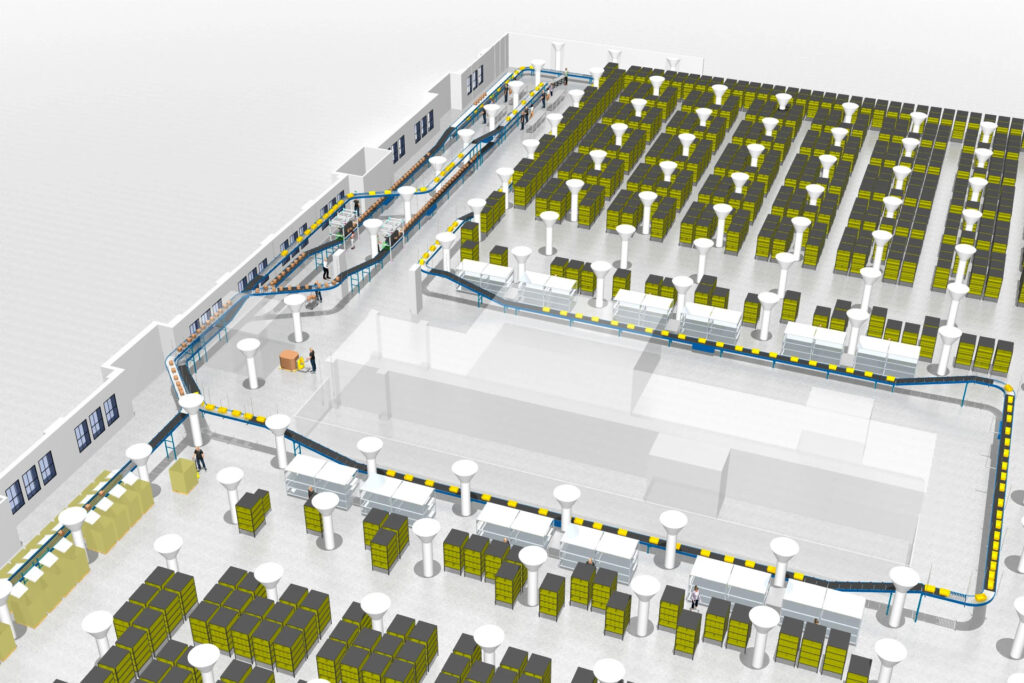Estimated reading time: 4 minutes
What:
- Connects a variety of different technologies together, from different manufacturers
- Integrates the technologies to work cohesively, intelligently, and safely
Why:
- No equipment manufacturer can provide everything you need – they specialize
- Integrators have a broad, unbiased expertise across a wide range of technologies
- We’ve written software that makes your system smarter
- You don’t have to do it alone – we’ve seen some things and can offer helpful advice and ideas to make your automation smarter
- Keep pace with changing technology and growing customer demands
Fulfillment Automation Integrators Are Material Handling Technology Experts
Are you looking at updating your distribution warehouse to improve material flow and increase productivity? If so, there is a wide range of technologies to explore, and once you begin to get an understanding of the types of systems you have a need for, you should then reach out to a systems integrator to help.
Why? Designing a successful material handling system requires the integration of a wide range of specialized technologies, from a number of different manufacturers. Scales, dimensioners, scanners, conveyors, control panels, photo-eyes, printer applicators, diverters, lights, alarms, sensors, robots, vertical lift modules, case erectors, baggers, tapers, palletizers, document inserters, and software – all these technologies have to work together in concert to create a successful fulfillment automation integrator system.
Each of these technologies is developed by companies that are highly specialized in each of their own areas of expertise, to develop the best products in their category. There is no single machinery manufacturer that produces every device necessary for your warehouse, and none that will connect them all.
A Material Handling Systems Integrator Is Able To Provide Unbiased Advice On What Technologies Are Best Suited For Your Business’s Challenges, Goals, And Product Details
The role of a material handling systems integrator is to manage the design, equipment, and installation of a cohesive material handling automation system. A systems integrator consults with clients to understand their facilities and business needs and designs a system with a wide variety of interconnected, specialized technologies that meet those needs.
The systems integrator will design and implement a customized solution based on your specific requirements, to meet your goals. They’ll recommend trustworthy brands and equipment that works well with others, and will efficiently process the types of items your warehouse handles.
You’ll Need Warehouse Control System (WCS) Software To Interface With The Hardware, And The Best Integrators Have Developed Their Own
An effective material handling system requires communication on both a hardware and software level as well. Today’s warehouses run on a software to manage things like inventory, orders, transportation, receiving, replenishment, manifesting, sortation, and more. Understanding how the equipment will send and receive data between all of these software tools is critical.
The best fulfillment automation integrators have developed their own in-house software to manage these connections between hardware and software. This is called the Warehouse Control System (WCS) software. It should be able to handle the hardware handshakes between equipment such as conveyors, scanners, scales, printers, and control panels, and should also be able to communicate with the ERP, WMS, multi-carrier, and other software platforms.
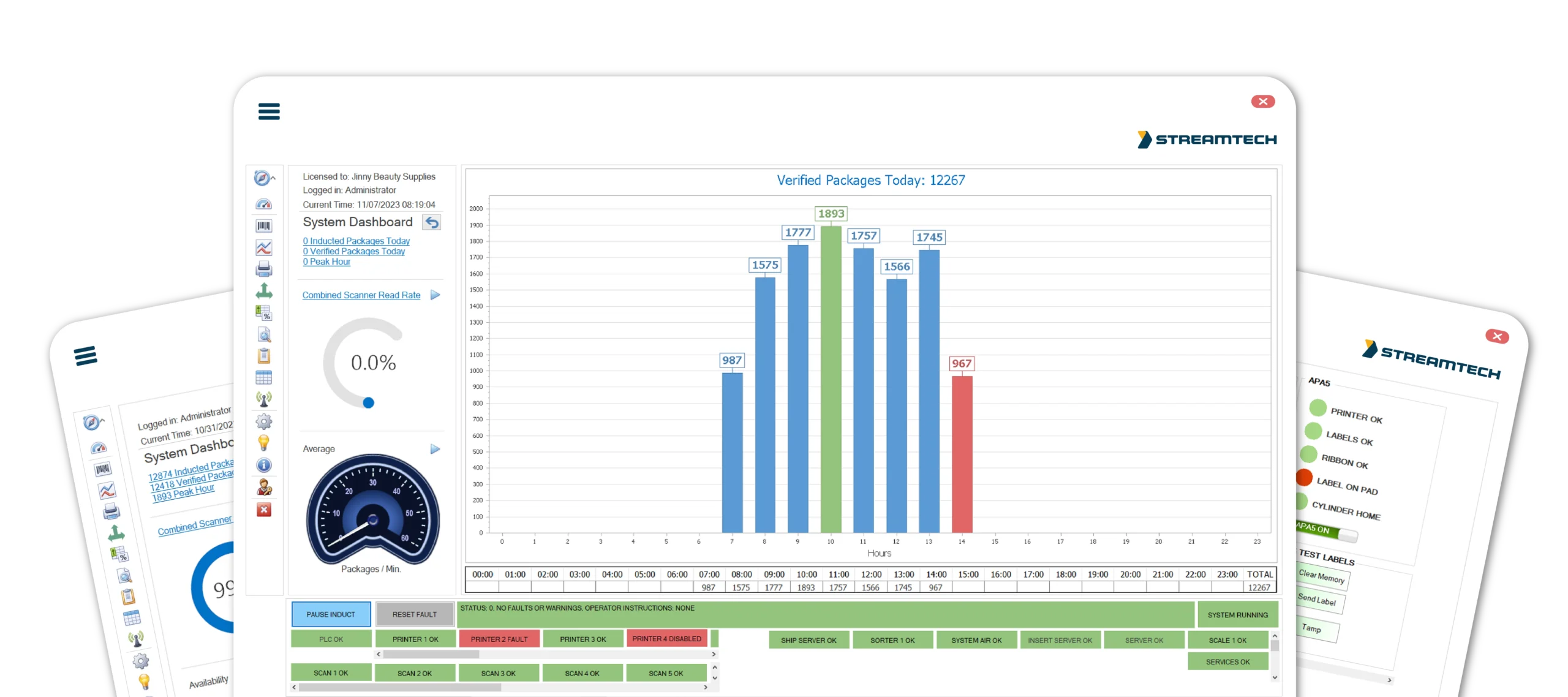
A Warehouse Control System (WCS) is a real-time, integrated control solution that manages the flow of items through the warehouse. They act as a traffic regulator for warehousing activities, with the mission of running material handling systems (and in some instances, the activities of workers). A good WCS system provides a broad, yet consistent interface for material handling systems like conveyors, carousels, palletizers, sorters, etc.
Key WCS Functions:
- WCS manages the operations of many types of material-handling equipment
- WCS exchanges real-time communication of information
- WCS can synchronize the operation of automated systems, labor, and material
- WCS unifies the interface and control of automated equipment
- WCS focuses on one warehouse at a time
Material Handling Systems Integrators Help Avoid Common Pitfalls And Recommend Best Practices
With experience developing material handling solutions for a wide range of industries including eCommerce fulfillment, manufacturing, retail distribution centers, third-party logistics providers (3PLs), and more, a material handling systems integrator will work with you to develop the best solution for your specific business needs.
The systems integrator plays a key role as the link between different technologies, the warehouse operator’s goals, and material details. Getting any piece of this equation wrong would likely produce a worse result than before.
Keep Pace With Ongoing Technological Changes With Integrated Warehouse Systems
Technology changes, business requirements change, and the expectations of the warehouse will change over time, and integrators help companies keep their systems relevant. Integrators also help companies make better use of their space by identifying opportunities for automation, or performance-based solutions as they become available. Integrators are often involved with implementing new warehouse management software and technologies that can be used to reduce costs while improving service levels to customers.

